
Study tour of a delegation from Ivory Coast in Cape Town, South Africa
In the context of a technical cooperation between the Authority for Urban Mobility in the Great Abidjan (AMUGA), the French development Agency and CODATU, a delegation from AMUGA came to Cape Town from 4 to 8 July, along with a representative from the Ministry of Transport, the coordinator of one of the BRT projects of Abidjan and two representatives of the paratransit industry.
The aim of the study was to get feedback regarding the planning of a mass-transit project and contracting with operators, the evolution of the urban transport governance, and the regulation of the paratransit industry.
Lessons can indeed be drawn from Cape Town, where a BRT project called MyCiti has been implemented, and included the integration of some of the paratransit operators. These specific features echo some of the challenges faced by the delegation in the context of the implementation of several mass-transit projects in Abidjan (1 metro and 2 BRT lines).
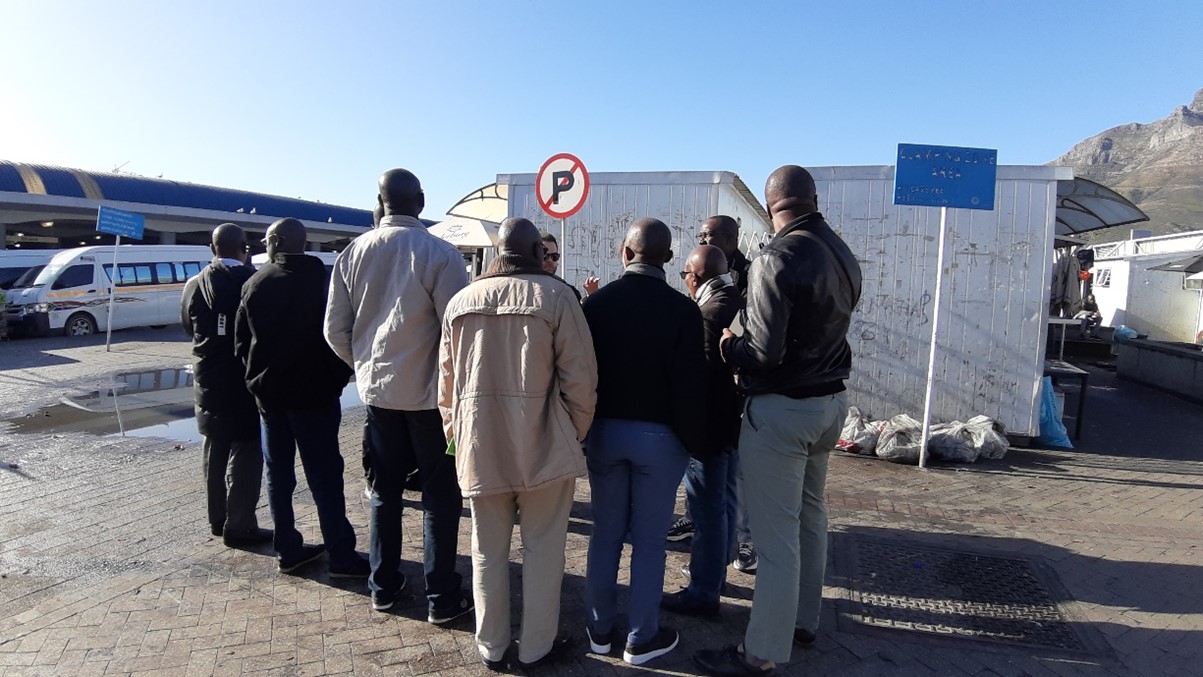
During the study tour, the delegation had the opportunity to meet up with the Urban Mobility Directorate from the City of Cape Town, the main bus operator Golden Arrow Bus Service as well as the representative of Route 6, one of the minibus-taxi associations in Cape Town. The study tour also enabled the delegation to get a global understanding on urban mobility in Cape Town thanks to the feedback of experts such as Gerard Hitge, Gershwin Fortune and Prof. Roger Behrens.
All along the week, the delegation benefitted from the knowledge and expertise of Herrie Schalekamp, technical expert for CODATU during the study tour, and Nico MacLachlan, co-founder of Organization Development Africa (ODA) and facilitator during the negotiations with the minibus-taxi industry in MyCiti project Phase 1.
Mass-transit project planning and contracting with operators, “Don’t start with the technology”
Following a visit of the BRT network from Civic Centre to Big Bay on Monday 4 July, the delegation joined Nico MacLachlan for a meeting on Tuesday 5 July. During the presentation, Nico MacLachlan came back on the different phases of implementation of the BRT in Cape Town, focusing on the role and mandates of the local transport authority, the different contracting options, and the catalytic role of the 2010 FIFA World Cup to launch MyCiti.
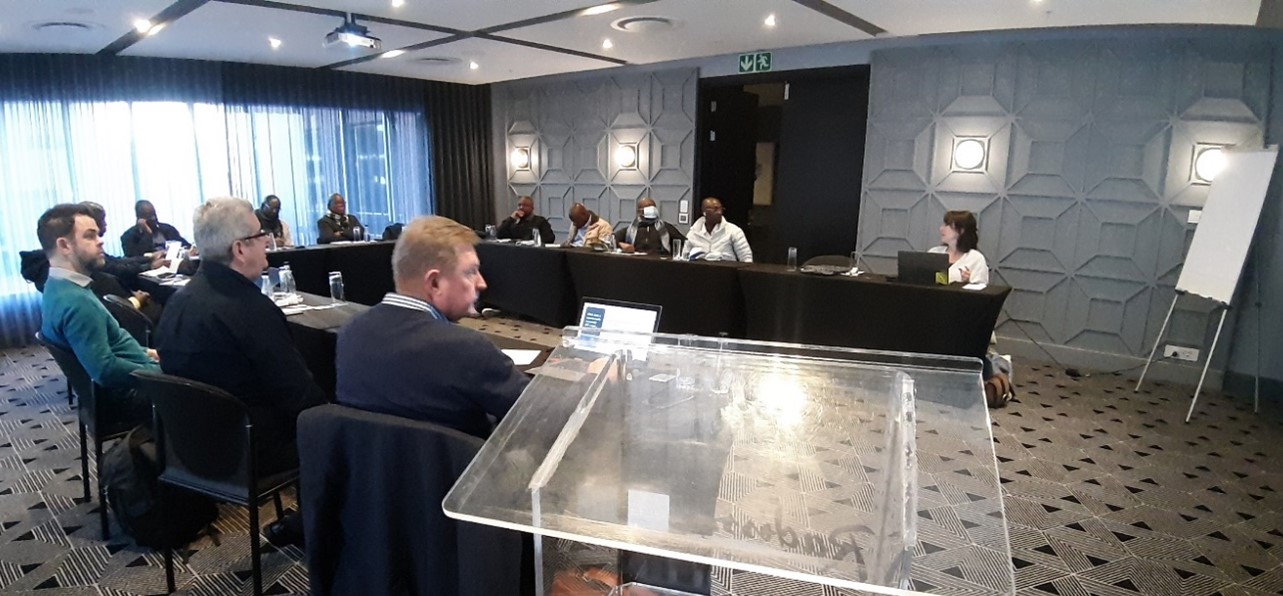
This presentation was complemented on Wednesday 6 July by meetings with Gerard Hitge and Gershwin Fortune. Gerard Hitge came back on the necessity to coordinate urban planning and mobility planning, more specifically thanks to the Transit Oriented Development approach. Gershwin Fortune raised awareness on the evolution of the local transport authority mandates and internal organization when implementing a mass-transit project, from its design until its delivery.
These various presentations enabled to clarify the capacities and mandates expected from a local transport authority to develop a strategic vision, coordinate mass-transit projects aimed for city dwellers, and build strong connections with the local transport operators.
Operations of the public transport system in Cape Town
In addition to the feedback on the implementation of the MyCiti project, the delegation also met up with François Meyer, CEO of the main bus operating company in Cape Town, Golden Arrow Bus Service. Mr. Meyer introduced the different contracting options existing in the context of GABS and MyCiti, and also gave feedback on the evolution of the relationship with the minibus-taxi industry in the context of the Vehicle Operating Companies created to operate MyCiti in Cape Town. Eventually, Mr. Meyer shared Golden Arrow’s innovative strategy to develop a bus electric fleet in Cape Town. The delegation enjoyed a visit of the Arrowgate depot (equipped with solar panels) as well as a tour with one of the Golden Arrow electric buses.
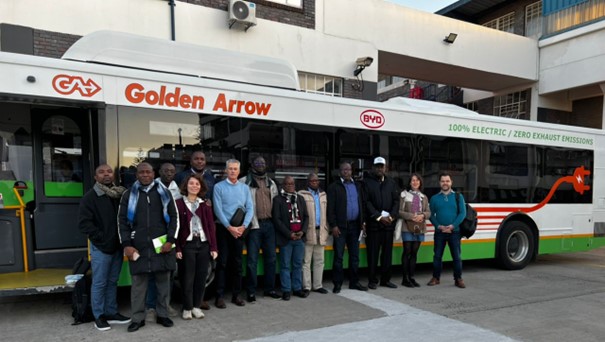
The team of the Urban Mobility Directorate of the City of Cape Town also welcomed the delegation. The meeting gave more opportunities to gain feedback on the main key takeaways drawn from the Phase 1 of MyCiti implementation (evolution of the governance, contracting with operators, fare system, integration of the minibus-taxi industry). The team also presented the current strategic vision regarding urban mobility in Cape Town, and some of the innovations to be developed in MyCiti Phase 2 which is currently being planned and implemented. The visit of the control room for traffic management enabled the delegation to understand the diversity of challenges faced and the means available for the City of Cape Town to regulate the different networks on a daily basis.
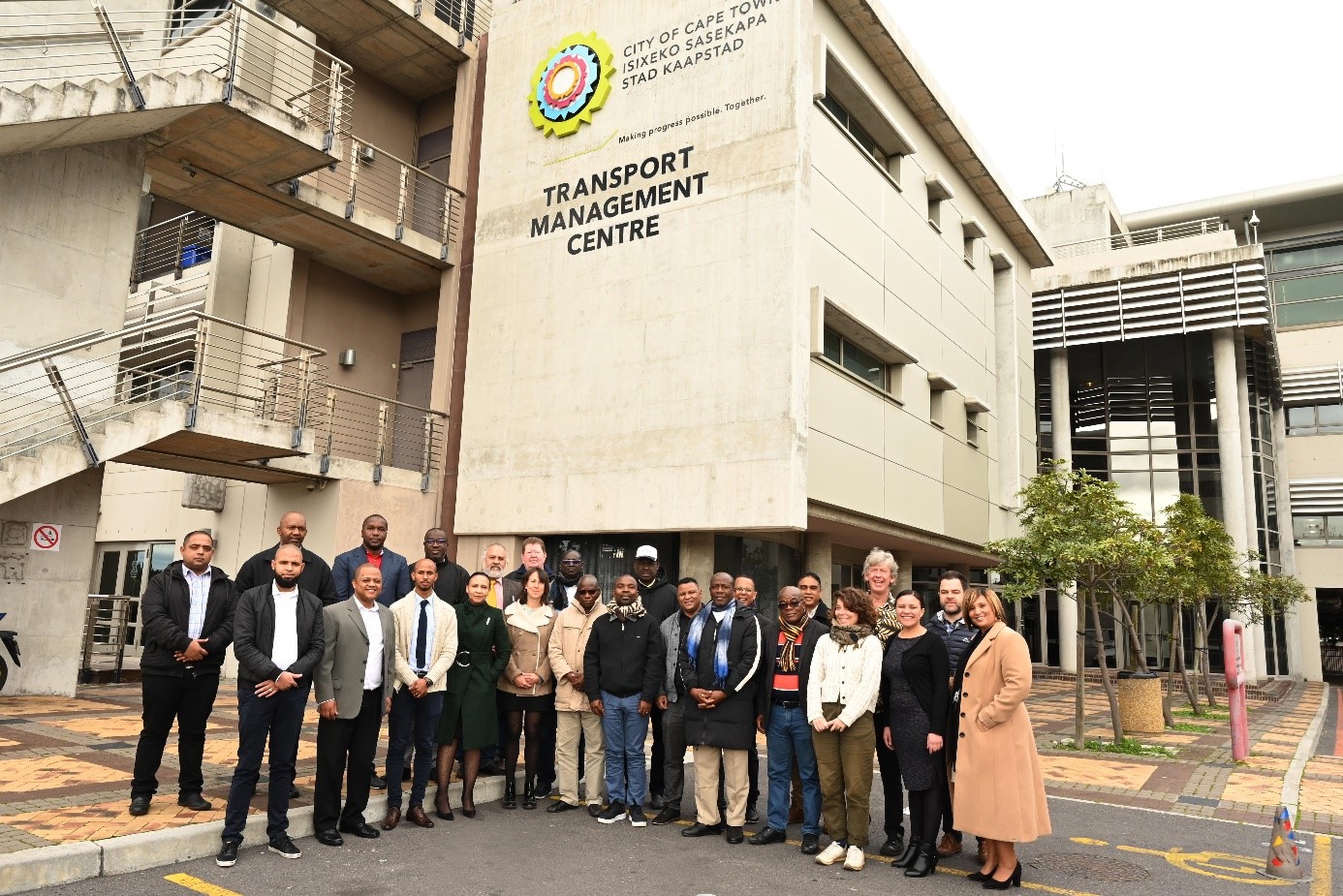
Regulation and integration of the minibus-taxi industry
The presentation made by the Urban Mobility Directorate team provided the delegation with an overview of the strategies regarding the integration of the paratransit industry by the City of Cape Town, including in the MyCiti Phase 2. The modalities and specificities of the integration implemented in the current phases were discussed in-depth during a visit organized by Nico MacLachlan in Mitchell’s Plain Public Transport Interchange, where the delegation met up with Mr. Henry Hawk Williams, president of route 6 taxi association and chairman for Santaco. During the discussion, Mr. Williams explained how the negotiation process with local authorities took place, and what is the current role of the minibus-taxi industry in the operations of MyCiti in Cape Town. Herrie Schalekamp completed this discussion by presenting in detail the training program created to professionalize operators from the minibus-taxi industry in MyCiti Phase 1.
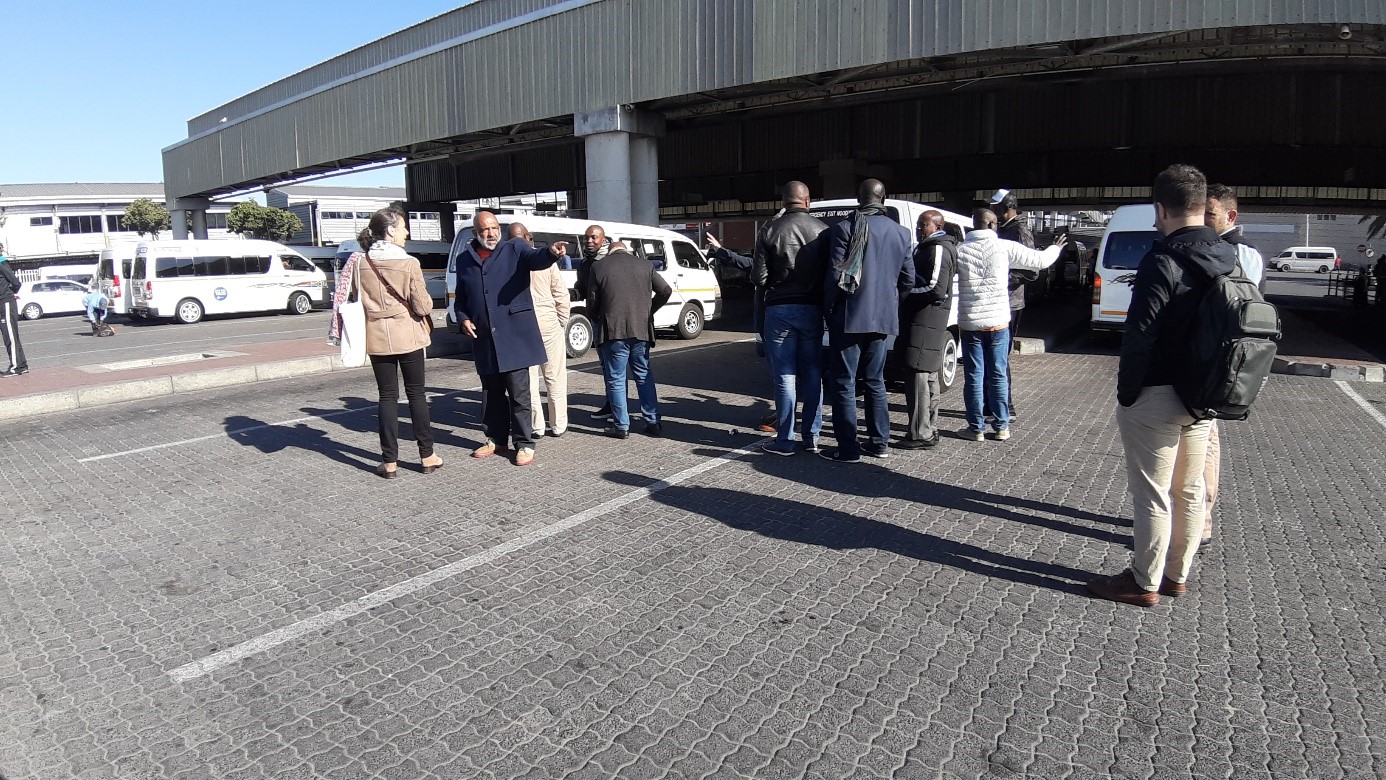
Eventually, at the end of the week, a smaller group met up with Professor Roger Behrens from Cape Town University and Director of the Center for Transport Studies, in order to get insights on the research led by this transdisciplinary center, and the crucial role of academia and researchers to provide critical feedback and analysis to local authorities in the context of massive urban projects such as BRTs.
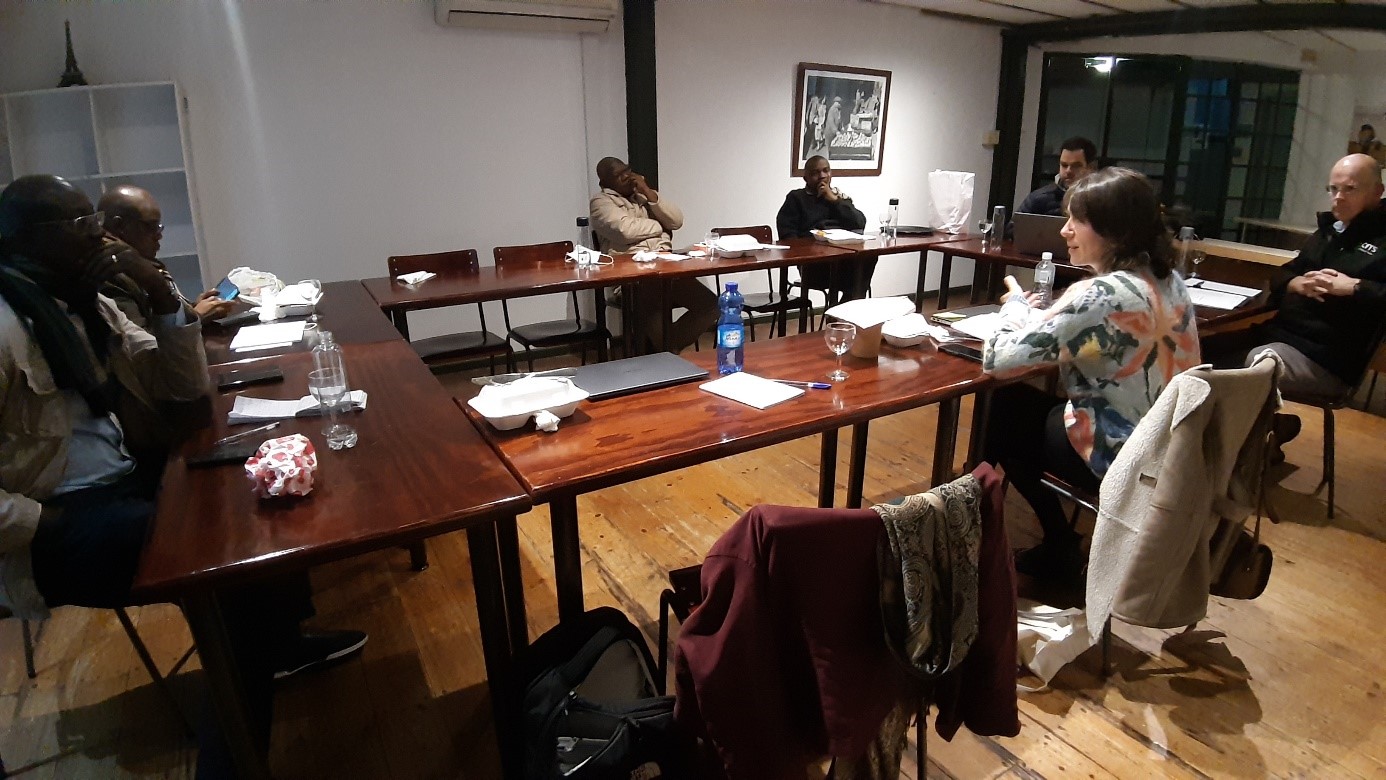
This week in Cape Town enriched the delegation with many thoughts, insightful feedback and knowledge from the South African experience, which will enable AMUGA to start the elaboration of a roadmap on the paratransit integration in Abidjan.
